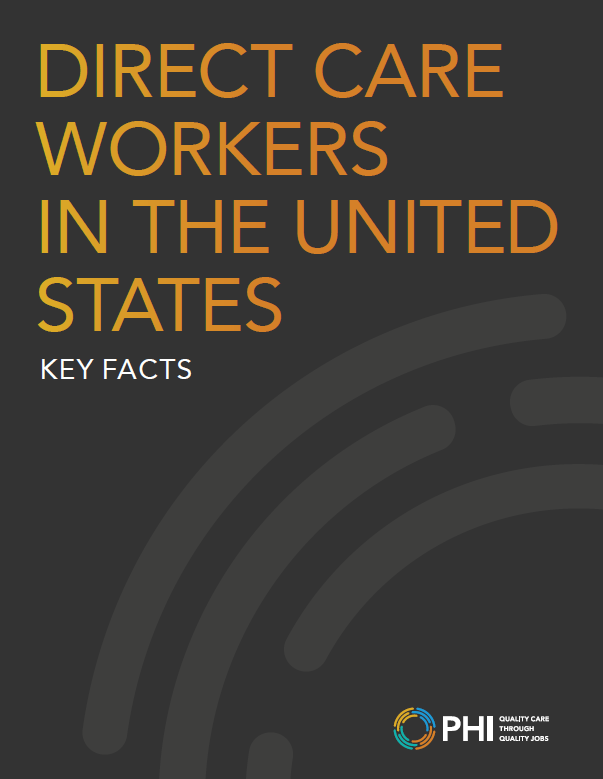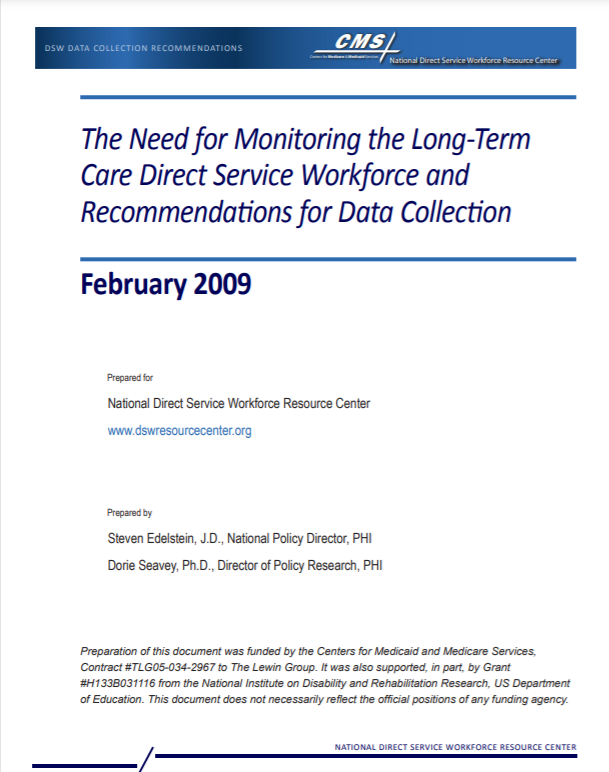When it comes to tracking and measuring critical dimensions such as workforce size, stability, credentials, and compensation (among other variables), federal and state data collection systems remain inadequate and under-resourced. As a result, policymakers, industry leaders, and other long-term care stakeholders—at the local, state, and federal levels—lack the data they need to make sound decisions that would improve these workers’ jobs. Additionally, federal industry and occupational codes need updating, which includes developing a new code for direct support professionals (among other improvements), and job quality metrics need widespread adoption across research, policy, and practice.
RECOMMENDATIONS
To better understand direct care workforce capacity and develop tailored solutions to pressing workforce challenges, we recommend the following:
Create robust workforce data collection systems. While workforce shortages are widely reported in the field, their scope, severity, and root causes are not fully understood. New data collection systems should be established to regularly measure workforce size, stability, credentials, and compensation. These data would help policymakers strengthen the direct care workforce—notably by quantifying workforce needs and evaluating the impact of policies and programs on workforce supply and job quality.
Update federal industry and occupational classification codes to understand the direct care workforce more fully. Existing public data on direct care workers combine diverse industries and occupations, obscuring critical differences within the workforce and limiting employment projections and other calculations. For example, the current industry classification “Services for the Elderly and Persons with Disabilities” doesn’t adequately capture non-medical home care providers, adult day care centers, and other dissimilar services. Also, direct support professionals who care for people with intellectual and developmental disabilities are combined with other direct care workers, which creates significant gaps in knowledge about this critical workforce, and independent providers employed directly by consumers are difficult to quantify. Federal leaders should re-assess how best to code data on this sector to allow for more precise analysis of long-term care occupations and industries.
Strengthen and integrate direct care workforce quality measures into research, practice, and policy. High-quality jobs in direct care—along with strong relationships between direct care workers and consumers—are essential to care quality. Federal and state policymakers should integrate direct care job quality measures into the laws, policies, and payment mechanisms that shape long-term care, to ensure that job quality is prioritized and evaluated over time.








